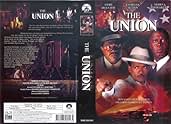Agrega una trama en tu idiomaUnion activist Asa Philip Randolph's efforts to organize the black porters of the Pullman Rail Company in 1920s America.Union activist Asa Philip Randolph's efforts to organize the black porters of the Pullman Rail Company in 1920s America.Union activist Asa Philip Randolph's efforts to organize the black porters of the Pullman Rail Company in 1920s America.
- Premios
- 4 premios ganados y 4 nominaciones en total
- A. Philip Randolph
- (as André Braugher)
- James Randolph
- (as Kedar)
- William Green
- (as Chris Bondy)
- Isabel Robbins
- (as Emma Fleury)
- Dirección
- Guionista
- Todo el elenco y el equipo
- Producción, taquilla y más en IMDbPro
Argumento
¿Sabías que…?
- TriviaA. Philip Randolph was the first president of the BSCP, serving in that position from 1925 through 1968, and received the Presidential Medal of Freedom (the highest civilian honor awarded in the United States) in 1964 from President Lyndon B. Johnson. Randolph was born in 1889, in Florida, and died in 1979 in New York City, aged 90.
- ErroresDuring the Depression, A. Philip Randolph makes a trip to Chicago in the early 1930s. During the stock footage, there is a clip of an L train from the 1950s.
- Citas
[last tile cards]
Title Card: On August 25th, 1937 the Pullman Company signed the first ever agreement between a union of black workers and a major American corporation. It was twelve years - to the day - of the founding of the Brotherhood of Sleeping Car Porters.
Title Card: For the next four decades Randolph carried forward his fight for equality. In 1963, commemorating the 100th Anniversary of the Emancipation Proclamation, Randolph initiated the March on Washington for Jobs and Freedom. It was at that gathering that a young Martin Luther King, Jr. delivered his "I Have a Dream" speech... and Randolph passed his torch to a new generation of leaders in the fight for Civil Rights.
- Créditos curiososThis film is dedicated to all the men and women who were involved in the struggle to organize the Pullman porters.
Still, if you think that the civil rights movement began with the Montgomery Bus Boycott, you will find this movie fascinating. The drive to organize the African-American porters combines civil rights and workers' rights with historical perspectives on the late 1920's and 1930's.
One thing that struck me about this movie is the presence of benevolent White characters. In many African-American rights movies, all Whites are either evil or ineffectual morons. (Think the White assistant principal in Lean on Me). There are many White racists in the role of antagonists in this movie, but there is also the White rep for the AFL, who works to support the growing union.
- calspace
- 26 dic 2003
- Enlace permanente
Selecciones populares
Detalles
Contribuir a esta página

























